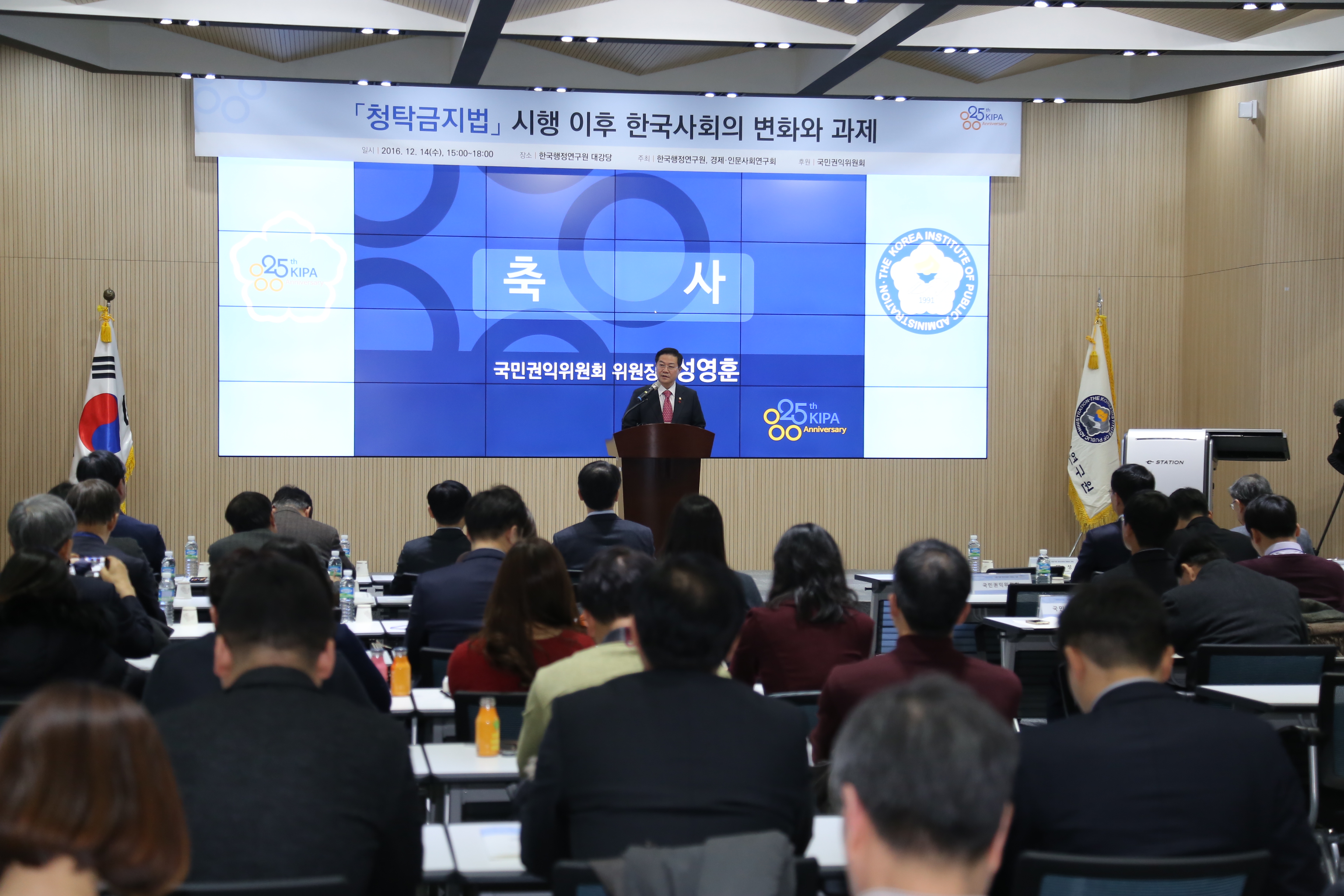News & Publications
Press Release
First case of Korea's new anti-graft law: Court fines woman 90,000 won for giving "rice cakes"
- Date2017-02-06
- Hit2,980

Young-hoon Sung, Chairperson of ACRC, is speaking at an academic debate on the Improper Solicitation and Graft Act
The court rendered its decision on the first violation of the Improper Solicitation and Graft Act. On December 8, the Chuncheon District Court imposed a fine of 90,000 won, double the price of the rice cakes (45,000 won) the defendant had sent to a police officer. According to the Act, court can levy a fine two to five times the illicit gift's monetary value.
Ms. Cho, the accused, sent a box of rice cakes to the police officer who was in charge of her legal case on the first day of the enforcement of the new law, September 28. The police officer immediately returned the box and reported to the police station's internal complaints and inspection service division. The police station asked the Chuncheon District Court on November 18 to fine the giver for violating the Act, claiming that "sending rice cakes to the police officer whose official duty is closely connected to an ongoing investigation should constitute improper solicitation".
During the investigation, Ms. Cho argued that she sent the rice cakes to express her gratitude as the officer accepted her request to reschedule the time for questioning and maintained her stance that she didn't violate the Act because it was only a small gift and socially acceptable behavior.
The court, however, ruled that "taking into account the fact that an offer is given to the police officer whose official duty is closely connected to the legal case of the accused, the circumstantial evidence is strong enough to provide a reasonable chance of conviction since the fair performance of the police investigator is highly likely to be impaired" and found "the defendant is guilty as charged".
According to findings from a survey released by the Korea Institute of Public Administration on December 14, about 85%of respondents, including public officials, politicians and journalists directly affected by the new anti-graft law as well as citizens, said that they are in favor of the implementation of the Act. More than 82% of people expected that the law will contribute to curbing irregular practices and corruption and promoting fairness in Korean society.
Particularly, "reforming the culture of business entertainment", "encouraging the practice of splitting the bill" and "improving unequal relationship between employers and subcontractors" were cited as the greatest changes that the new law has driven in Korean society. Roughly 72% of people said that they started to recognize the improperness of the customary practice of solicitation and gift-giving.









